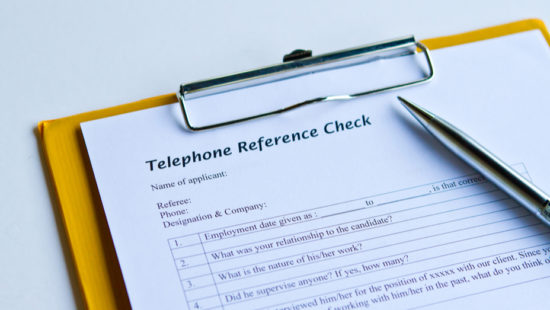Secrets to topgrading interviews
When you look at the world’s most successful companies – think GE, Bank of America, Microsoft, Zappos – you probably want to model their growth strategies, their leadership or their innovative thinking. But you’d be missing the one thing that is most vital to success: their hiring practices.
All of these companies use topgrading interviews.
While it was developed to help leading organizations find the best candidates for top positions, topgrading has expanded to nearly every industry at every level of hiring. From global conglomerates to start-ups, anyone can use topgrading interview questions to determine candidates’ skill sets and personalities, uncover patterns and ultimately make the most informed decision.

What is a topgrading interview?

A topgrading interview is a style that is more in-depth than the average job interview. Topgrading interview questions are very detailed and follow a chronological order from high school to the present day then into the future. Topgrading also involves thorough reference checking – candidates are typically required to arrange interviews with all of their supervisors going back 10 years. Candidates are graded on scorecards based on a set of predetermined criteria.
While topgrading interview preparation can be time-consuming, the process creates a much more holistic view of each candidate. By asking objective and specific questions and looking for patterns employers are better able to root out dishonest and unqualified candidates. You can also use topgrading interviews to evaluate current employees for promotions – stacking your top producers and cutting off bottom producers.
Topgrading interview preparation
1. Create a clear job description
Go beyond listing job duties and experience required. Spell out the exact skills that candidates will need to be successful and include personality traits as well. Specify who the candidates will interact with and specific strengths that will serve them well.
2. Create a candidate scorecard
This is a list of about 20 specific criteria by which you’ll rate candidates on a scale of 1 to 10. Include soft skills, personality traits and technical skills and certificates. Rate their responses to hypothetical job situations and ask what inspires them to come to work every day.
3. Use customized questionnaires
Don’t waste time sifting through hundreds of résumés for unqualified candidates. Require potential hires to submit a detailed work history questionnaire before they’re even considered. Weak candidates won’t bother – and you’ll get a better idea of strong candidates’ traits.
4. Conduct phone interviews
Focus on work history and job satisfaction. Also ask general questions to determine whether candidates have a growth mindset, are a cultural fit and are results-driven. Only the strongest candidates get to move on to the topgrading interview.
5. Consult your scorecards
Keep precise records throughout the pre-interview process. While reading the questionnaires and conducting phone interviews, grade candidates on the scorecards you created. Use that information to choose those who get to move on.
6. Call in your candidates
It’s time to call in the highest-scoring people for the topgrading interview. Make sure you let them know what to expect: topgrading interviews can be lengthy and they’ll be expected to provide more references than they would for a typical interview.
Topgrading interview questions
You’ve carefully selected the candidates with the most potential and you’re ready to conduct your interviews. Topgrading interview questions typically go in chronological order and are very detailed.
Formative years
Topgrading interviews go all the way back to high school to get a full picture of the candidate. This part of the interview is short, but can be revealing.
- Tell me about a formative experience that influenced your values.
- What was your biggest disappointment in high school? What was your biggest achievement?
- Who did you most look up to in high school? Who influenced you the most?
- What were your career plans when you graduated high school? What did you end up doing?


Work history
During topgrading interviews, you’ll ask these questions about every previous job a candidate has held. This is often the lengthiest part of the interview, but it is extremely informative.
- What were your expectations for this job? Did they match reality?
- What were your goals in this position? Did you achieve them? How?
- Tell me about a major mistake you made and what you learned.
- What was your supervisor like? What were their strengths and weaknesses?
- What do you think your supervisor would say about your strengths and weaknesses?
Self-assessment and future plans
These topgrading interview questions will give you a better idea of the candidate’s personality as well as their ability to create and focus on goals.
- What are you looking for in your next job?
- Tell me three specific, measurable long-term goals you have in your life or career.
- What is your favorite, non-work-related skill or hobby?
- What do you like about yourself? What would you change?


Reference interviews
What really sets apart topgrading interviews is the comprehensive reference checks. Typically, hiring managers will speak with every supervisor the candidate has had in the last 10 years.
- Please clarify the candidate’s role at your company and your relationship.
- What did you like and respect most about the candidate? What did they most need to work on?
- Let me tell you about the role. Do you think the candidate is a good fit?
- Please rate the candidate as excellent, good, fair or poor on the following skills. (List the top skills from your scorecard.)
After the topgrading interview
After your topgrading interviews are conducted, it’s time to analyze all the information. If you completed the proper topgrading interview preparation, you’ll have detailed scorecards for each candidate. Add up each scorecard and separate your candidates into “A,” “B” and “C” categories.
The top 10% are your “A” players – they make it to the next round. The next 25% are your “B” players. You can incorporate subjective notes and opinions to determine whether these candidates make it to the next round. Everyone else is a “C” player and is eliminated.
Discuss the top candidates among the topgrading interview team and choose two or three finalists to meet with the higher-level executives at the company. If you’re stuck, you may have the candidates complete a skills assessment or take a personality test to give you more information. Once you have the executives’ input, you’ll make the final decision and welcome your new employee!
Is the topgrading interview preparation the solution your business needs?
Topgrading interviews help top companies to hire the best talent. Start leveraging this process in your own business. Learn more today through Tony’s Entrepreneur Accelerator Toolkit.